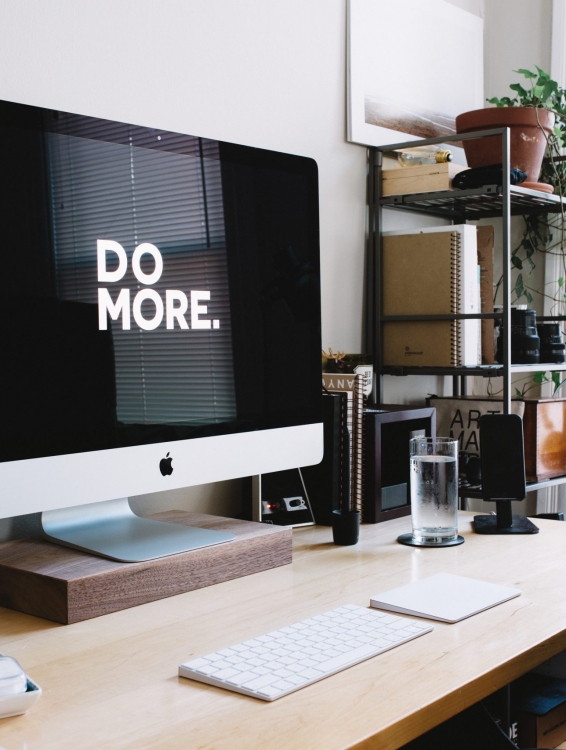Do You Have Productivity Anxiety?
Do I have Productivity Anxiety?
In a world that glorifies productivity and success, the pressure to constantly perform at peak efficiency can often lead to a phenomenon known as productivity anxiety. You may have clicked on this article because you’re curious about what exactly is productivity anxiety…but maybe you have it!? I first learned about the term productivity anxiety from a poem by Rupi Kaur and ever since then it’s hard to not notice when I felt this way or I hear productivity anxiety in other people’s lives. This pervasive sense of unease and fear of not measuring up to societal expectations can significantly impact one’s mental well-being. In this blog post, we will explore the roots of productivity anxiety, its manifestations, and offer practical strategies to overcome this daunting challenge.
How do I know if I have productivity anxiety?
Productivity anxiety is more than just a passing worry about meeting deadlines or completing tasks; it’s a persistent, overwhelming feeling that you are never doing enough. This can have profound effects on your mental health. The fear of failure, perfectionism, and the constant comparison to others are common contributors to productivity anxiety. Social media, with its curated representations of success, often exacerbates these feelings, creating an unrealistic standard to which individuals feel compelled to adhere.

Manifestations of Productivity Anxiety:
- Perfectionism Paralysis: Productivity anxiety often stems from a fear of making mistakes or not meeting high standards. This fear can lead to perfectionism paralysis, where individuals become so fixated on achieving perfection that they struggle to start or complete tasks.
- Feeling Guilty when Resting: One of the distinctive signs of productivity anxiety is the inability to relax and fully embrace downtime. Even when attempting to rest, individuals with productivity anxiety may find their minds racing with thoughts about uncompleted tasks or a looming sense of guilt for taking a break. This relentless need to be constantly productive can lead to chronic stress, further exacerbating productivity anxiety.
- Constant Comparison: The digital age has made it easier than ever to compare oneself to others. Constant exposure to highlight reels on social media can fuel feelings of inadequacy and intensify productivity anxiety as individuals measure their worth against others’ achievements.
- Imposter Syndrome: Productivity anxiety is closely tied to imposter syndrome, where individuals doubt their abilities and believe that their success is undeserved or a result of luck. This persistent self-doubt can undermine confidence and hinder productivity.
Strategies for Overcoming Productivity Anxiety:
- Set Realistic Goals: Break down larger tasks into smaller, manageable goals. This not only makes the workload seem less daunting but also allows for a sense of accomplishment with each completed task. Practice acknowledging your limitations each day and keep your goals realistic.
- Embrace Imperfection: Recognize that perfection is unattainable and that making mistakes is a natural part of the learning process. Embracing imperfection can alleviate the pressure to constantly meet unrealistically high standards.
- Tune into Your Self Talk: When it’s hard to take a break, or you feel like you’ll “never be good enough” pause and be curious about that message. Where did you first learn that in order to be “good enough” you had to be productive? Who told you that implicitly or explicitly?
- Challenge the Negative Messages: After identifying the messages driving your anxiety it’s time to challenge them. Do you really believe that to be true of other people? Does this message just apply to you? Does that make sense? Do you WANT it to be true?
- Limit Social Media Exposure: Be mindful of the impact social media can have on mental well-being. Limiting exposure to curated success stories can help mitigate the constant comparison that contributes to productivity anxiety.
- Practice Self-Compassion: Treat yourself with the same kindness and understanding that you would offer to a friend. Understand that everyone faces challenges, and it’s okay to ask for help when needed. It’s also okay to not do it all! You are human just like everyone else and we have only so much capacity and energy every day.

I have productivity anxiety – what can I do?
As someone who also deals with productivity anxiety, I know that it would feel really good to be told what to do to “get better”. This is definitely one of the areas where doing less is more and slowing down is the antidote to productivity anxiety. Start by slowing down and noticing how you are feeling in the moment and practice mindfulness. It’s helpful to just notice when you are feeling anxious and then really question what the root of the anxiety is. If you don’t get this task done today, what will really happen?
Recognizing these signs is a crucial first step in addressing productivity anxiety. If you identify with several of these warning signs, it’s important to prioritize your mental health and consider seeking support, whether through self-help strategies or professional assistance. We have also included some self-compassion affirmations you can tell yourself when your productivity anxiety gets loud.
Self-Compassion when Productivity Anxiety is loud:
- “I am valuable just as I am”
- “It’s okay to not do it all”
- “I don’t have to be perfect”
- “I deserve to take breaks”
- “Other people’s success doesn’t take away from my value”
Even as I am writing this blog, I’m acutely aware of how much more I could add into it, and how much more I have on my to do list! As I notice this in myself I get to remind myself that all of that work will be there tomorrow, and that if this blog isn’t perfect, that’s okay! I have some spare time after I post this but instead of checking off more things I am noticing that my body really wants to do some stretching and go for a gentle walk, and then lie down and take a break. I hope that this blog has been helpful for you, and if you are noticing that you identify with productivity anxiety I encourage you to reach out to a counsellor, because it doesn’t have to be like this forever.




